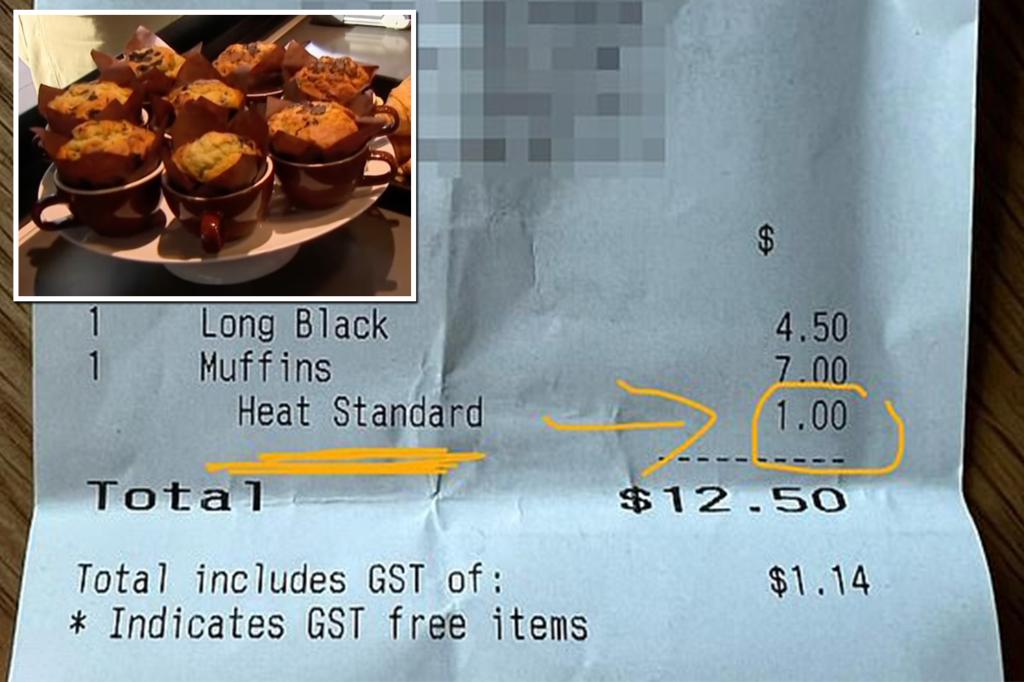A customer at a Melbourne cafe was charged $1 to heat up a muffin and shared his receipt on Facebook, sparking outrage online. The man was shocked by the extra charge, especially since he did not remember being informed about it. The total bill for a long black coffee and a muffin came to $12.50, with an additional $1 added for heating the muffin. The customer expressed his frustration at the undisclosed charge and questioned where all the expenses were going in the midst of a cost of living crisis.
The man explained that he had ordered the muffin after a waitress suggested he try it with his second coffee order. He agreed to have the muffin heated, considering it was a cold morning in Melbourne. After discovering the $1 surcharge on his bill, the customer took to Facebook to share his experience, which garnered over 870 comments and 1,000 reactions before being deleted. Many people were shocked by the extra charge and the price of the muffin itself.
In response to the backlash, a cafe spokesperson claimed that the $1 fee for heating the muffin was a mistake and that they have never charged for heating their baked goods. The spokesperson criticized the customer for posting about the incident on social media instead of discussing it in person. The cafe received negative attention and even death threats as a result of the online post, causing the issue to escalate unnecessarily.
To address the situation, the cafe shared a post on social media urging kindness and announced that they would be giving away free muffins on a specific day. They encouraged customers to be mindful and lead with kindness in their interactions, offering a complimentary muffin to enjoy alongside their morning brew. The cafe’s gesture was aimed at diffusing the tension and negativity surrounding the extra charge incident, emphasizing the importance of empathy and compassion in customer service.
The controversy surrounding the $1 heating fee for the muffin served as a reminder of the importance of transparent pricing and customer communication. While the cafe claimed it was a mistake, the incident highlighted the need for businesses to be upfront about any additional charges to avoid misunderstandings and customer dissatisfaction. By offering free muffins to customers, the cafe aimed to make amends and foster a positive relationship with their patrons, turning a potentially damaging situation into an opportunity to showcase goodwill and generosity.
In conclusion, the incident at the Melbourne cafe serves as a cautionary tale for businesses regarding the importance of clear communication and fair pricing practices. Customers expect transparency and honesty when it comes to charges, and any hidden fees can lead to backlash and negative publicity. By addressing the issue with kindness and offering a goodwill gesture, the cafe demonstrated its commitment to customer satisfaction and resolution. Ultimately, the situation highlights the impact of social media on businesses and the power of public perception in shaping reputations.


